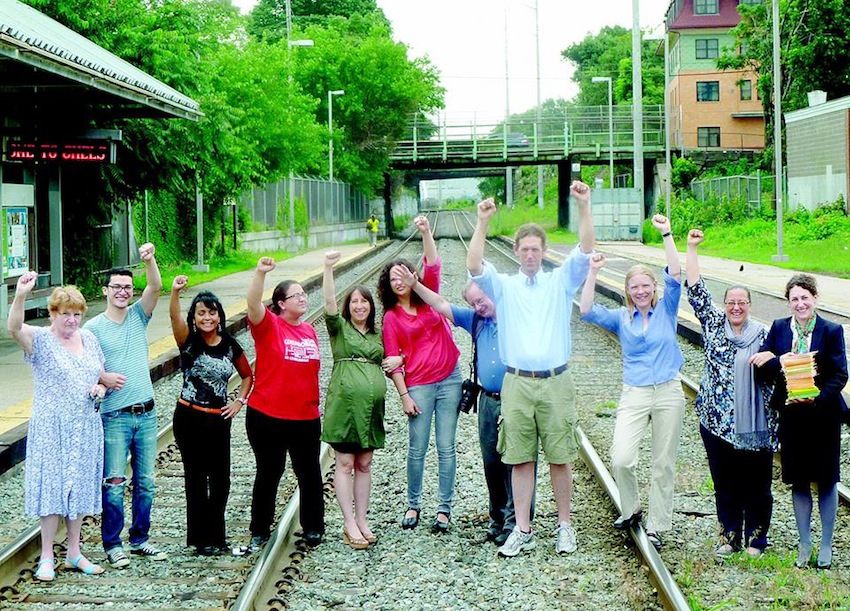Trains Carrying Flammable Liquids Won’t Be Traveling Through Greater Boston
Opponents of a plan to allow freight trains to ship flammable liquids through cities and towns in the Greater Boston area claimed a slight victory this week after the owners of the fuel company behind the initiative backed down.
Global Partners LP withdrew their proposal to bring millions of gallons of ethanol by train through multiple Massachusetts communities after the legislature passed an amendment that would make it difficult for the company to obtain a license to make improvements to their Revere facility, including adding tracks leading into the site. “His words were ‘We surrender’,” said Roseann Bongiovanni, associate director of the Chelsea Collaborative, referring to her conversation with a senior executive of Global Partners Monday afternoon. “The $17.5 billion company says that community opposition to their ethanol trains is too strong.”
Bongiovanni and several activist groups have been fighting Global’s plan to use trains that would travel along MBTA-owned tracks, hauling ethanol to their Revere headquarters, for more than two years.
The organizing efforts were led by members of the Chelsea Creek Action Group, a coalition of residents from East Boston and Chelsea, Alternatives for Community and Environment, an environmental justice organization, and residents from Somerville, Cambridge, and other nearby communities that could have been put in the line of danger due to the proposed train track routes.
Elected officials on Beacon Hill also lobbied against Global’s desire to ship the highly flammable liquid through densely populated areas by filing an amendment to the state budget, which was passed by the Joint Ways and Means Committee on Monday, July 1. Sponsored by Senators Anthony Petruccelli, Sal DiDomenico, and Patricia Jehlen, the wording of the amendment said that facilities such Global’s, within a half-mile of 4,000 or more residents, and accepting 5,000 or more gallons of ethanol per week, should not receive a Chapter 91 license if they apply.
Global’s plan was to bring in up to nine million gallons of ethanol per week by train, potentially putting millions of residents and 100 communities across the Commonwealth at risk of exposure to a massive fire or explosion, Bongiovanni said. The proposed plan would have essentially replaced the company’s existing methods of transportation by barge near the Chelsea Creek along Route 1A.
A study done by the Massachusetts Department of Transportation in 2012, commissioned by the legislature, showed that the areas Global wanted to travel through were not equipped to extinguish the flames that could be caused by an accident like a freight train tipping over.
In order to change their method of transport from water to train, however, Global needed to make improvements to its facility, including adding the tracks to their headquarters, in order to obtain a Chapter 91 license from the state. But due to the strong opposition on both a state and local level, the company backed down from its plan.
“This is a tremendous victory for residents of Chelsea, East Boston, and Revere,” said Kim Foltz, Director of Community Building and Environment. “After tireless organizing, the message has finally gotten through to Global Oil—ethanol trains do not belong in our community.”
The same activist groups that rallied against Global are now trying to get communities to push Governor Deval Patrick to pass a law that would ban these types of proposals altogether, and keep similar plans from being presented by fuel companies in the future.



